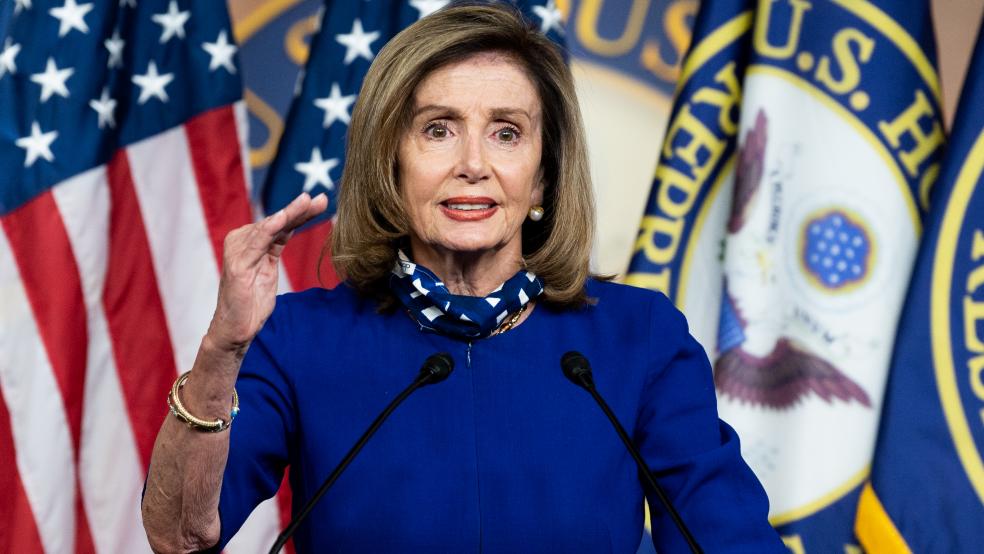With a coronavirus relief bill now pushed to the back burner, it looks like Congress will have to address two major fiscal issues in the lame-duck session following Election Day: the roughly $2 trillion relief package still being hashed out by House Speaker Nancy Pelosi (D-CA) and Treasury Secretary Steven Mnuchin, and legislation to prevent the government from shutting down when a stop-gap funding deal expires on December 11.
As Roll Call’s Jennifer Shutt reports Wednesday, lawmakers kept the stimulus and government funding packages separate earlier this year, with Congress successfully passing a bill at the end of September that extended funding for the federal government until mid-December. But in the lame-duck session following the election, that may change.
Pelosi has signaled that the two issues may end up being addressed at the same time. “In the lame duck we’ll have to pass stimulus or we’ll have to put provisions in the appropriations bill to keep government open,” she said earlier this month.
Trouble ahead? President Trump has predicted that he will sign “the best stimulus package you’ve ever seen” after the election, but there are serious questions about how those negotiations could play out, with much depending on how things go at the ballot box. If Trump loses, it may be difficult if not impossible to come up with a deal, given the president’s sometimes erratic behavior, which could become more pronounced following a bruising defeat. (“He throws fits almost every day as it is; it'd be hard to tell the difference,” Sen. Patrick J. Leahy, a Vermont Democrat, said last week.)
If conditions in Washington — including a Republican-controlled Senate that has shown little interest in passing another multi-trillion-dollar relief bill — make it impossible to pass a stimulus bill in the lame-duck session, lawmakers may follow Pelosi’s lead by including crucial relief spending such as unemployment aid and small business loans in the government funding bill.
That may simply set up another clash, with lawmakers fighting over funding levels for both the government and the relief package. House Republicans opposed the inclusion of $250 billion in pandemic relief funds in the stop-gap funding bill a few months ago, and while some have signaled that they would be willing to change their minds, negotiating final numbers could be difficult and time consuming — a particularly challenging task during a lame-duck session.
Threat of a shutdown: A major clash between the two sides could result in a government shutdown. “If party leaders and the White House can’t reach agreement on at least another stopgap measure before Dec. 11, a partial government shutdown would begin,” Shutt says. “That would be more disruptive than the 35-day shutdown in late 2018 and early 2019 that began over a border wall funding dispute.”
Another way out: G. William Hoagland of the Bipartisan Policy Center tells Shutt that he doesn’t think Congress will pass either a relief package or a full government funding bill this year. “It's too much too quickly,” he said. But that doesn’t mean a shutdown is likely. Instead, Congress could follow the time-honored tradition of punting on a difficult issue by passing another stop-gap funding bill, sweetened with a bit of relief spending. “Something in my gut tells me it's a continuing resolution with an adjustment for COVID,” Hoagland said.




